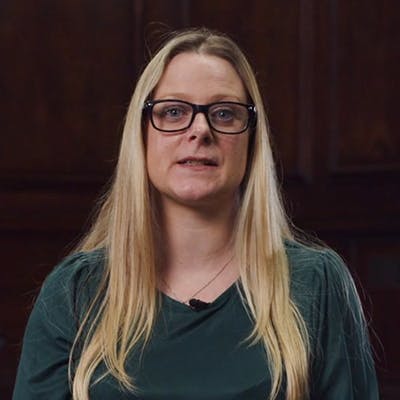
Dr Laura Adnum is a Lecturer of Criminology at Liverpool Hope University and her teaching interests include queer criminology, substance misuse and crime, and psychological criminology. She has been at the university for four years, having previously worked as an assistant psychologist in young people’s mental health, and a postdoctoral researcher in Glasgow. Her research interests are around drugs, alcohol and criminal justice, and historical criminal justice. Her most recent paper, written with a senior colleague at Liverpool Hope University, offers a comparative analysis of the final words of executed prisoners in England 1840-68 and Texas 1982-2004.


